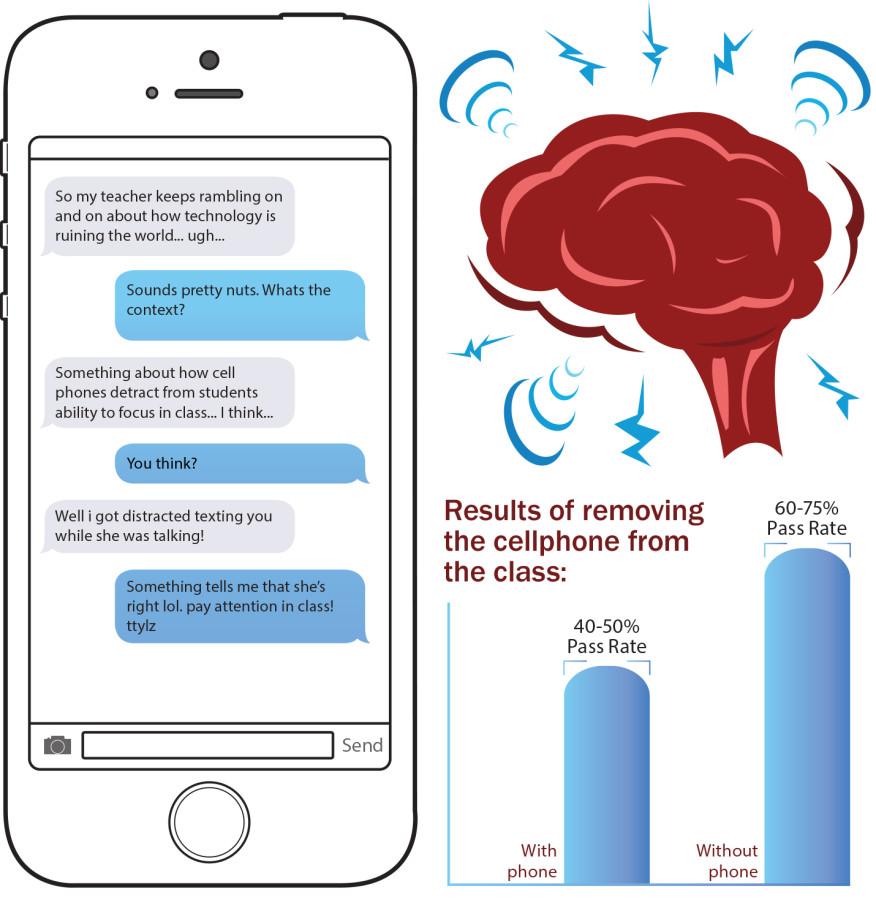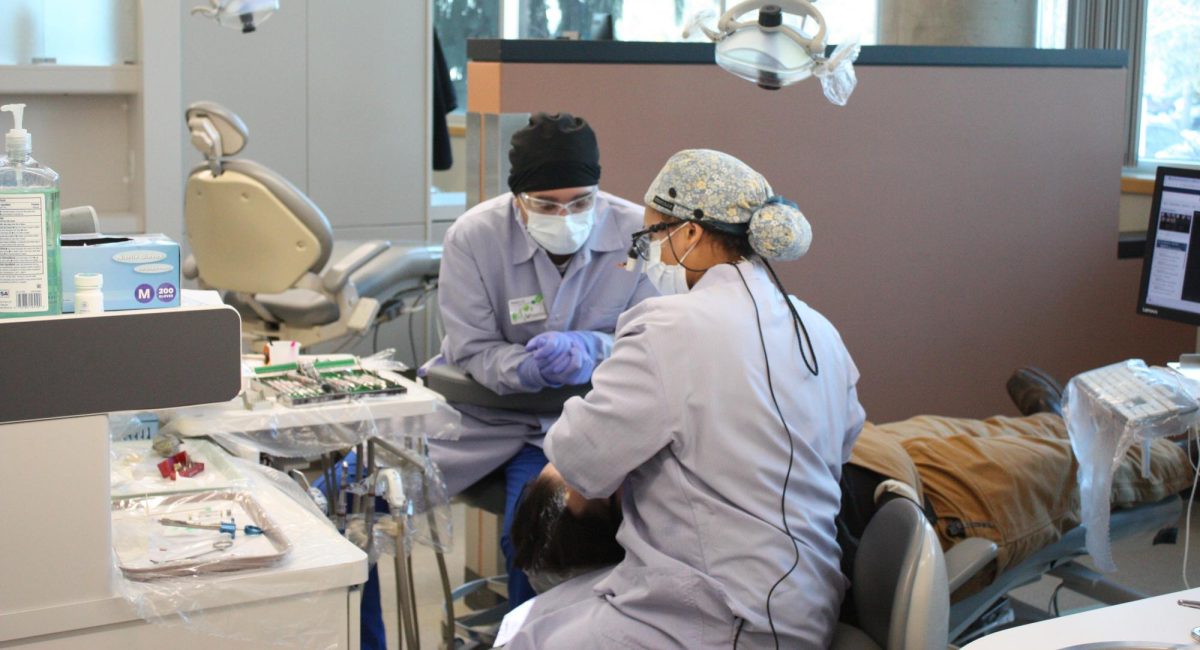Low cellphone use in class results in higher grades
January 24, 2015
In 2015, most college-aged students have to strain to remember life before cell phones.
Though the smartphone may be one of the most prolific inventions of modern times, it is not difficult to understand why many teachers — kindergarten to university level — do not want them in the classroom.
Jim Leigh, a lecturer in EWU’s math department, said his first year at Eastern in 2012 he assumed cellphone use would be under control. But he soon found that students who used their phones during class were not paying attention. Halfway through his second year, he decided his policy needed an update.
“I just got tired of watching people fail,” said Leigh. “So I changed it.”
Leigh said once cellphones were absent from his classes, he watched an estimated 40 to 50 percent pass rate climb to a 60 to 75 percent pass rate. He said there are other variables to consider such as different groups of students and attendance, but overall, banning phones in his classes made it easier for students to focus.
This policy is nothing out of the ordinary among Eastern faculty; many professors have a no-phones policy printed in their class syllabus without any real university recommendation.
“We don’t have a university policy specifically addressing cellphones in the classroom,” said Dave Meany, EWU Director of Media Relations. “That is within the instructor’s purview.”
EWU does have a cellphone policy outside of the classroom; the University Recreation Center does not allow cellphones on the exercise floor. The JFK Library asks that devices are set to vibrate when entering the building and to keep conversations restricted to certain areas. But in the classroom there is no official policy.
Smartphones may be the wave of the future in education — an article in The New York Times from Jan. 7 highlights the end of a 10-year ban on cellphones in New York City public schools. The National Education Association also published articles recently about the usefulness of smart phones as a tool in the classroom, especially when a lack of funding limits access to laptops.
Many colleges and universities, including Eastern, have mobile alert systems that notify students, faculty and staff of emergencies and safety situations on campus.
For now though, Eastern students can expect varying cellphone policies in the classroom.
Leigh said he understands the usefulness of cell phones. He knows emergencies arise. There are many students who are also parents. In these cases, he only asks that calls are taken in the hallway and that devices are set to vibrate.
“I think cell phones are wonderful because they keep us in touch with things that are important,” said Leigh. “But when we go to a class, or a meeting, or go to lunch with somebody, I think the [cellphone] should be turned off and put away.”









